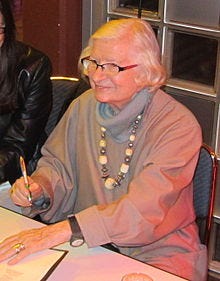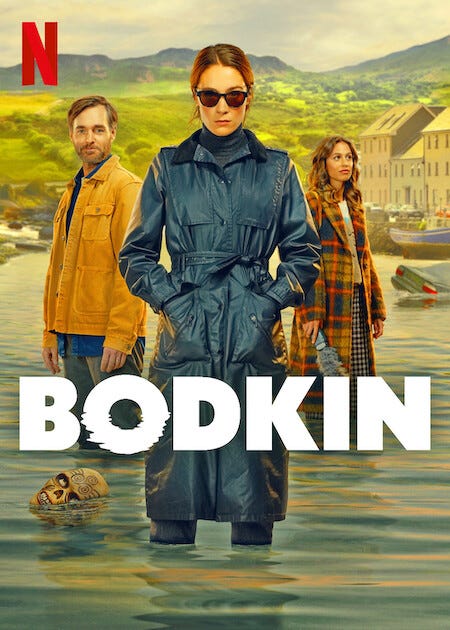This missive comes after a little summer vacation, during which we travelled around a bit - driving through Austin and stopping in San Antonio - before ending the week at our diocesan Camp Allen where I will be teaching Anglican Spirituality to bivocational postulants!
I am a little late getting this because of the trip.
Writing
I wrote a short piece for Covenant, an online journal of The Living Church, about the future of Anglicanism and ministry to children. You can find it here.
Also, as of this month, my book Anglican Biblical Interpretation in the Nineteenth Century has been out for about three months. I understand it will be reviewed in a couple of journals am grateful folks will be reading it.
About the book, Ephraim graciously wrote,
What a wonderful book! As a study of Victorian English biblical interpretation, it fills a pressing need and offers insight that is both provocative and delightful. Nineteenth-century Anglican theology outside the Oxford Movement is not so much under-studied (it is that), as woefully underappreciated, not least in its lasting influences. Hartin traces some of the chief contours of Anglican exegetical theology during this long period, including lesser-known lights like Christina Rossetti and Richard Chenevix Trench. He does so with a deft and knowing hand, lucidly explicating working assumptions, nuances, and trajectories. In the process, he uncovers substantive contributions too long ignored, and offers theological evaluations that properly challenge today’s churches. A splendid contribution to our understanding of Anglicanism, and highly recommended for students, clergy, and scholars.
A couple of short pieces for our parish newsletter, The Crucifer. One on the givenness of life, and the other a few book recommendations.
This last month was light on the preaching duties for me, with some special services, a visit from our diocesan bishop, and some time away. Still, here is one from early in the month of May.
Reading
This past month was filled with lots of good reading.
First was P. D. James’ Children of Men. I saw the movie years ago around the time it came out, but had not read the book. It’s chilling, thinking of a post-child society (and thus featured into my reflection on children in the Church in my Covenant post). But it was also interesting reading it now to see the theological resonances in the book. It’s not less entertaining for this, but the Church of England kind of provides a background, and many of the major characters are named after saints or biblical figures (Julian, Luke, Miriam, for instance). The book is not an allegory, but its shot through with interesting theological figures.
Also read No Country for Old Men by Cormac McCarthy for the first time. I was amazed by the cinematic nature of the text, and the hard-as-nails depiction of Texan life, and the problems inherent in and around international borders.
I also finished up a commentary on 1 Corinthians that I had been using this past term at Christ Church. This one is a theological commentary of the book, in the Brazos Theological Commentary on the Bible Series. I was introduced to the series while at Wycliffe and have referred to the volumes in it ever since. The quality is uneven and sometimes the volumes are idiosyncratic, but all of them that I have read are useful and illuminating. The 1 Corinthians commentary was written by Kimlyn J. Bender at Baylor. It was very good and helped to frame my thinking for the adult formation series at Christ Church.
Finally, I read Karl Ove Knausgaard’s The Wolves of Eternity. This one, like all of Knausgaard’s works, was a whopper. It’s the second in a subtly apocalyptic series that is set in the present in Europe as the world is coming to an end but nobody really cares. It feels very much like our world, save for a massive star that appears in the sky and stays there. I referred to the first volume in one my Substack posts from earlier this year. It’s called The Morning Star and was definitely weirder. Wolves of Eternity easily stands alone, without any of the plot depending on The Morning Star, but set in the same universe. The plot in this volume vacillates between the present and 1980s Norway and Russia. One theme in the text is the elimination of death (kind of an interesting counterpoint to the elimination of birth in The Children of Men) and the thinking of Russian philosopher Nikolai Fyodorovich Fyodorov features large into the narrative.

Knausgaard talks about some of the weird Russian experiments from the 1920s and 30s that attempted to reanimate dead creatures. This is one of them. The book was great and I can’t wait for the third installment.
Listening
It was hard for me to pin down on artist to share this week. I’ve been enjoying Axel Flovent’s new album, as well as listening to a lot of Right Away Great Captain! (which I’ll have to comment on another time).
But for this month, I’ve been loving all of the new content released by:
Donovan Woods, and I’ve also been re-listening to his older albums, especially Don’t Get Too Grand.
If you don’t know Woods, he’s just a really sweet-sounding singer/songwriter with thoughtful, introspective lyrics. I think he’s based in the US now, but he’s from Sarnia, ON, and lot of his music references places in Ontario that I know well. One new single, “Back for the Funeral” is an insightful look at middle-age, and he mentions the Burlington Mall, a place well-known to Amy and me.
Watching
This was also a fruitful month for entertainment:
We watched the new series Bodkin on Netflix. The atmospherics and feel of the show were A+ but the plot kind of thinned out and then was unnecessarily convoluted, especially in the last few episodes. Still worth watching, I think. But the set up was much more promising than the plot turned out to be.
We also stumbled on a bit of a gem by Jake Gyllenhaal from a few years ago. The film is called The Guilty. Despite being almost entirely set in one room, and despite being entirely driven by dialogue, the film is riveting. It deals with some difficult subjects, including mental health, child abuse, broken families, etc., but it is worth watching.
Finally, we stopped short of finishing the series, but we really enjoyed the first few episodes of Everybody’s in LA. There were some good laughs (I cannot not laugh at Will Ferrell) but again, what I loved most about the show was the vibes, and the collage of scenes that served as filler.
Tasting
We had some great (and not so great) food while driving across central and south Texas.
One strange meal was at Curry Boys BBQ in San Antonio. This was a weird fusion of Texas barbecue with Southeast Asian Curry. So, for instance, one of their specialities was brisket served on coconut rice with green curry and veggies. Amy loved it, but it kind of grossed me out.
What I did love though was a burger I had at Bunz, a local burger joint in San Antonio. Everything there was actually fantastic, but I had the Cheek Bunz, a fresh ground burger on a housemade brioche bun topped with Boursin cheese, caramelized onions, arugula, and smoked bacon. It was great.
A little note
You know, over the summer we will be travelling quite a bit. I’ve been loving getting these posts out once a month, but my pace has fallen behind what I intended. I may do a combined “Summer” post for July/August to give myself a catch up. We’ll see.
Thanks again so much for reading. If you know someone who might like to follow along, please share this post.
Under the mercy,
Cole +








Cormac McCarthy is my favorite author. The border trilogy is Milton meets Remarque and L’Amour. He is the quintessential southern gothic author imo. Cheers.
I particularly enjoyed your "Children, Hope, and Our Declining Churches." It needs widespread distribution.